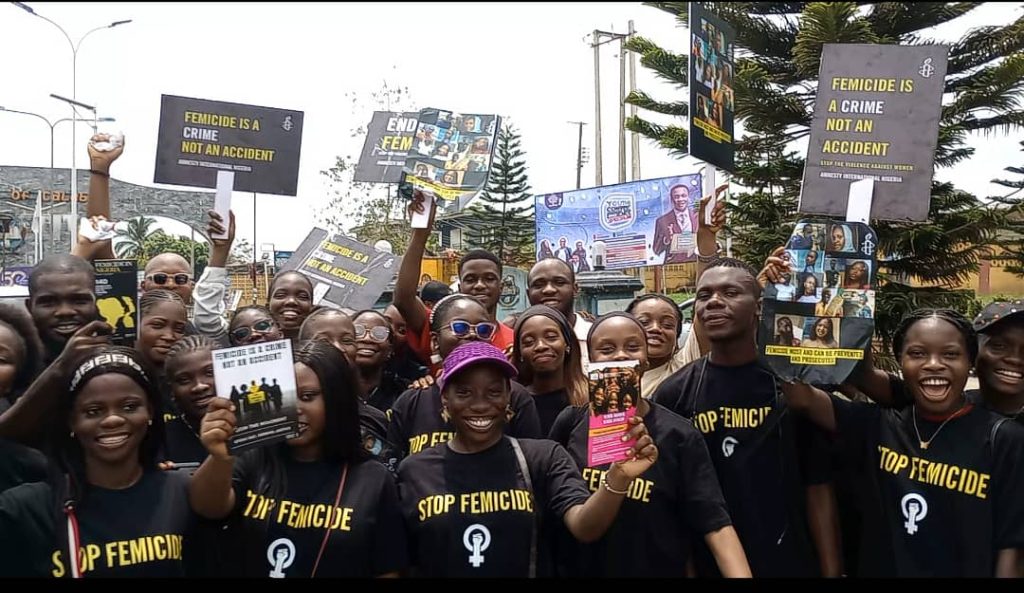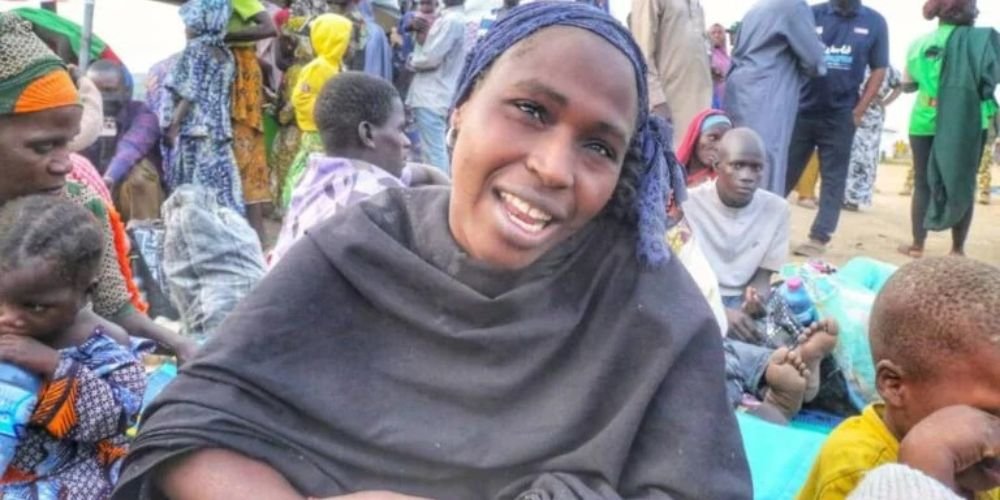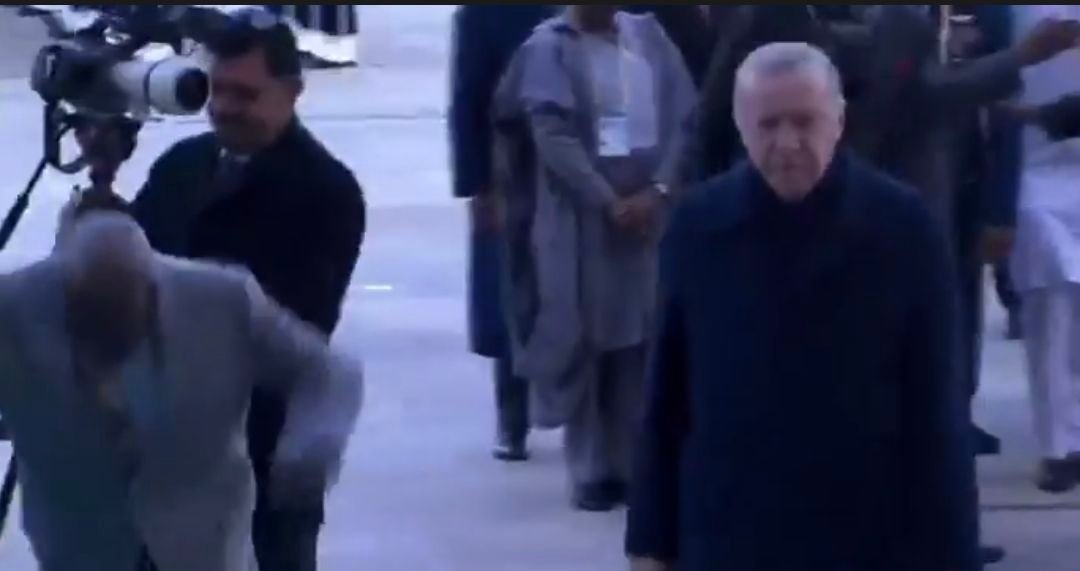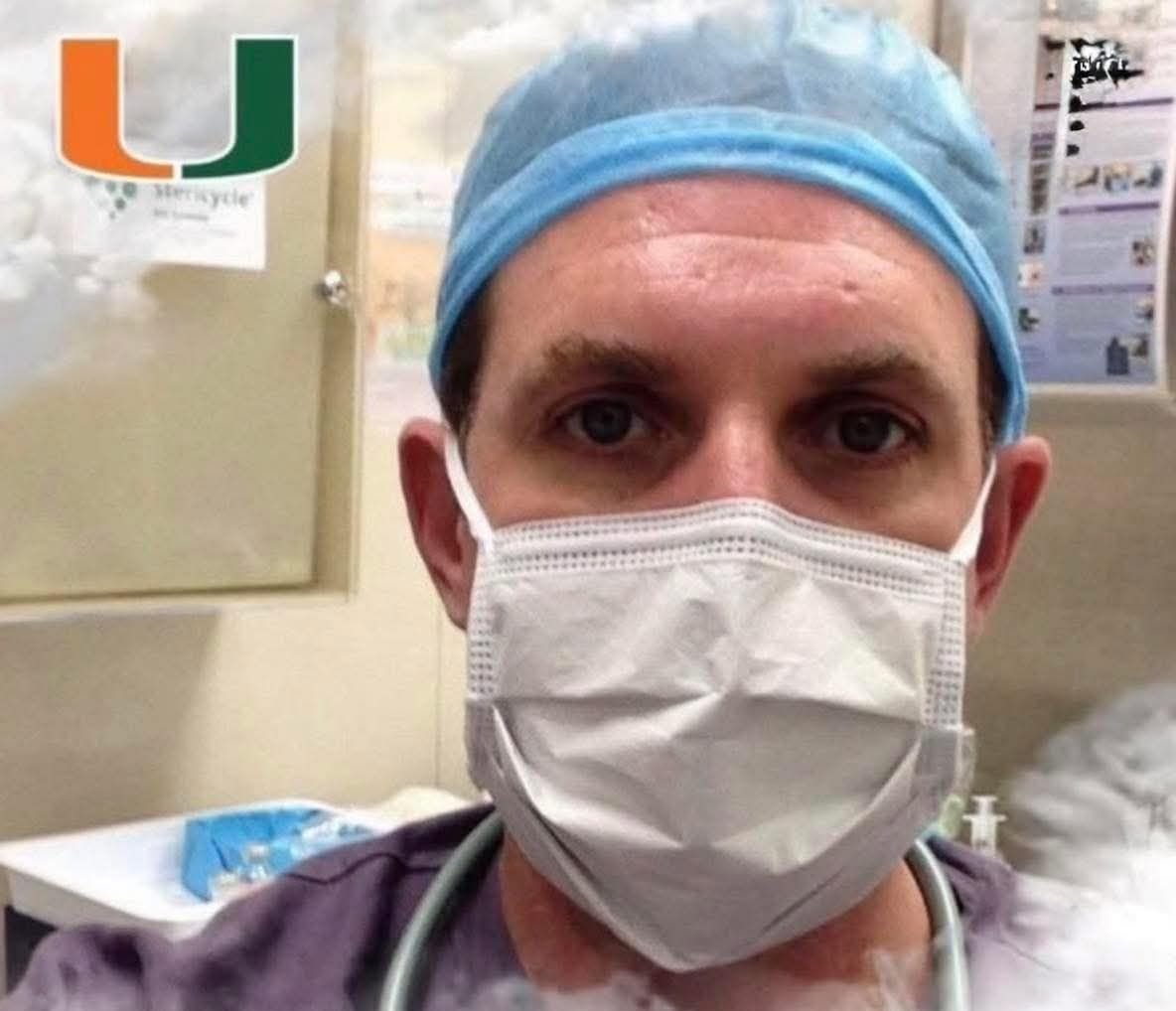Calabar, Nigeria – In a bold demonstration of solidarity and urgent activism, Amnesty International Nigeria (AIN) has used this year’s International Women’s Day celebration to draw attention to the increasing rate of femicide globally—and in Nigeria in particular.
The event, which was held in Calabar, the capital of Cross River State, featured a themed walk titled “Accelerate Action Against Femicide.”
Converseer reports that the march, which started at the University of Calabar Library, passed by the female hostel in ‘Malabo’ and culminated at the Main Gate, was designed to raise awareness on femicide, domestic violence, and women’s rights.
Participants from the university community, including members of the Female Law Students Forum and the International Law Students Association, joined in solidarity with the call for urgent reform.

Dr Blessing Ntamu, President of the Springs of Life Association for Women and Girl Child Development Initiative, spoke passionately at the event. She defined the crime ‘femicide’, as “An intentional killing of a woman motivated by gender.”
Dr Ntamu further highlighted the staggering toll of the violence, noting that “In 2023 alone 85,000 women were killed, out of which 51,000 were killed by their intimate partners, meaning that in every 10 minutes a woman dies by femicide around the world.”
She emphasised the disproportionate impact on women, asserting that “Over 95 per cent of women are killed because of their gender as opposed to 3 per cent of men killed on the basis of gender.” Adding to the gravity of the situation, she revealed that “One in every three women has undergone one form of gender-based violence or the other.”
Dr Ntamu attributed the rise in femicide to deep-seated socio-cultural practices and family upbringing that promote patriarchal values and a marked preference for male children.
She stressed that “Femicide is not a standalone event as it is an aspect of gender-based violence.” Calling for immediate change, she declared, “The right time to take action against femicide is now. Violence thrives when people keep silent. When you see something say something. Raise your sons to respect a woman. It is only weak men who raise their hands on women. We need to educate our male children. We have to dismantle all forms of discrimination against women. We have to say no to female genital mutilation. We have to say no to harmful cultural practices. We have to strive for equality. We need to do better. We need to make sure that the society goes in the right direction.”
The event also heard impassioned remarks from Gabriel Rockwell, Coordinator for Amnesty International Nigeria Supporters Group in Cross River State.
Rockwell urged men to stand in support of women, reminding the crowd that “They are our sisters, they are our mothers, they are our wives, girlfriends, nieces and cousins. We should step out and stop this menace that’s happening in our society.”
He added that AIN has been proactive in addressing gender-based violence, stating, “We have opened channels. We have conducted education campaigns, trainings, workshops, and talk shows. We are the only ones in Nigeria right now who have specifically picked out femicide and campaigned against it. The global theme for International Women’s Day is slightly different, but we at Amnesty picked out femicide because it is on the rise.”
Miss Nwawube Kosisochukwu, President of the Amnesty International Nigeria Human Rights Clinic at the University of Calabar, reaffirmed the ongoing commitment of the organisation.
She commented, “We have been constantly campaigning against femicide. In our own little way, we have taken sensitisation on femicide to males in the University community. We also go to secondary schools to spread this message. The issue of femicide didn’t just start with the men. It started from when they were growing up.”
With strong calls for comprehensive legislation and the strengthening of institutions to support victims and deter perpetrators, the event underscored an urgent need for societal change.
The campaign in Calabar stands as a powerful reminder that combating femicide requires collective action, widespread education, and a steadfast commitment to gender equality.




